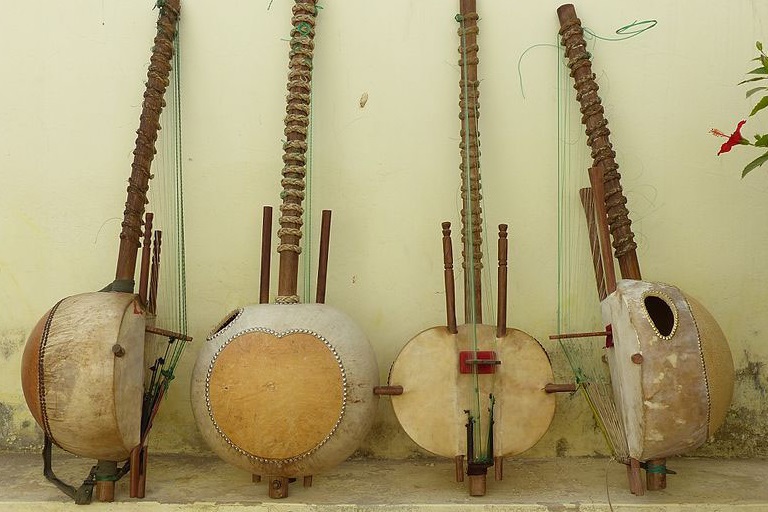Location: Mali
Dates: 1961-1990
Format: Open reel tape
Accession Numbers: 71-124-F, 71-259-F, 71-260-F, 72-230-F, 73-005-F, 75-190-F, 76-033-F, 76-034-F, 76-036-F, 78-104-F, 91-172-F
As a professor of linguistics at Indiana University, Charles S. Bird (b. 1935) worked with Malians to create a written version of the Bamanakan language and collaborated with griots to bring their artistry and their performances to audiences outside of Mali. His research on these master musicians/poets/historians added immensely to outsiders' understanding of professional music-making and expressive culture in Mali specifically and West Africa in general. This collection contains exceptional recordings of master musicians on the kora and donso-ngoni and performances of hunters music, praise singing, and the Epic of Sunjata by master griots. In 1972 he wrote, The Syntax and Semantics of Possession in Bambara which drew on the fieldwork documented in these recordings. In 1974 he wrote, The Songs of Seydou Camara: Kambili, the performances of which are documented in this collection. Most of these recordings were made on a Nagra–the state of the art for field recording at the time–and he documented epic performances that went on for four hours at a time, switching tapes as he needed to capture a typical performance. One of Bird's recordings became the centerpiece of John William Johnson's book, The Epic of Son-Jara: A West African Tradition. The several Bird collections at ATM also include recordings of Malian musicians performing or scholars lecturing at Indiana University about language, music, or culture in Mali.
Sample: Seydou Camara, vocals and ngoni, performs the Kambili epic in the Maninka language. May, 1975 in the Camara compound in Bamako, Mali (75-190-F OT 4420).
Location:

